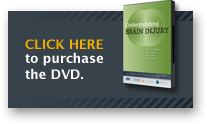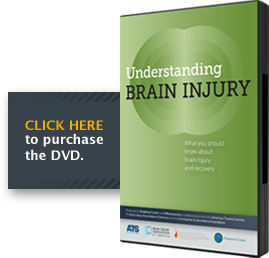Scales, Tests and Diagnostic Measures
The Rancho Los Amigos Scale
Often used to explain behavioral, cognitive and emotional changes that take place during healing
Level 1
No Response: Patient appears to be in a deep sleep and does not respond to voices, sounds, light or touch.
Level 2
Generalized Response: Patient reacts inconsistently and non-purposefully to stimuli; first reaction may be to deep pain; may open eyes, but will not seem to focus on anything in particular.
Level 3
Localized Response: Patient responses are purposeful, but inconsistent and are directly related to the type of stimulus presented, such as turning head toward a sound or focusing on a presented object; may follow simple commands in an inconsistent and delayed manner.
Level 4
Confused, Agitated: Patient is in a heightened state of activity; severely confused, disoriented and unaware of present events. Reacts to own inner confusion, fear or disorientation. Behavior is frequently bizarre and inappropriate to the immediate environment. Excitable behavior may be abusive or aggressive.
Level 5
Confused, Inappropriate, Non-Agitated: Patient appears alert; responds to simple commands. Follows tasks for two to three minutes, but easily distracted by environment; frustrated; verbally inappropriate; does not learn new information.
Level 6
Confused-Appropriate: Patient follows simple directions consistently; needs cueing; can relearn old skills, such as activities of daily living, but memory problems interfere with new learning; some awareness of self and others.
Level 7
Automatic-Appropriate: If physically able, patient goes through daily routine automatically, but may have robot-like behavior and minimal confusion; shallow recall of activities; poor insight into condition; initiates tasks, but needs structure; poor judgment, problem-solving and planning skills.
Level 8
Purposeful-Appropriate: Patient is alert, oriented; recalls and integrates past and recent events; learns new activities and can continue without supervision; independent in home and living skills; capable of driving; deficits in stress tolerance, judgment; abstract reasoning persists; may function at reduced social level.
Level 9
Patient independently shifts back and forth between tasks and completes them accurately for at least two consecutive hours; aware of and acknowledges impairments when they interfere with task completion; requires standby assistance to anticipate a problem before it occurs; depression may continue; patient may be easily irritable and have a low frustration tolerance.
Level 10
Patient is able to handle multiple tasks simultaneously in all environments but may require periodic breaks. Irritability and low frustration tolerance may persist when feeling sick, fatigued and/or under emotional distress.
Glasgow Coma Score (GCS)
Scored between 3 and 15*
The Glasgow Coma Score test measures the initial responses or lack of responses your loved one may have to determine the level of their brain injury.
Best Eye Response
(Scored 1 to 4)
- No eye opening
- Eye opening to pain
- Eye opening to verbal command
- Eyes open spontaneously
Best Verbal Response
(Scored 1 to 5)
- No verbal response
- Incomprehensible sounds
- Inappropriate words
- Confused
- Orientated
Best Motor Response
(Scored 1 to 6)
- No motor response
- Extension to pain
- Flexion to pain
- Withdrawal from pain
- Localizing pain
- Obeys commands
Total made up of three sectional scores
*Always look at a GCS broken down by components – not just the total. A GCS of 13 or higher correlates with a mild brain injury, 9 to 12 is a moderate injury, and 8 or less, a severe brain injury.
Produced by Shepherd Center and KPKinteractive in collaboration with the American Trauma Society, the Brain Injury Association of America and the Christopher & Dana Reeve Foundation.









